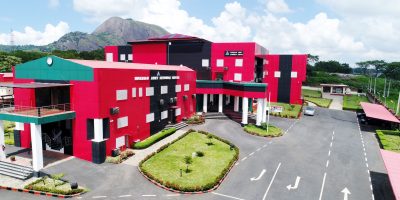A Guest Speaker at the Nigerian Army Resource Centre (NARC) Monthly Lecture Series, Professor Michael Oka Obono has emphasized the need for the nation to ensure climate change strategies are conflict sensitive in addition to developing a comprehensive climate change response strategy and improved climate security in the country. He made this known on Wednesday 23 October 2019 at the 9th Nigerian Army Resource Centre Lecture Series, with the theme “Migration, Ethnocentrism, and Interventions in Farmers-Herders Conflicts in Nigeria”, held at NARC Conference Hall A, Abuja.
The Chairman, Demography and Population Studies, Department of Sociology, University of Ibadan stated that, developing a climate change-sensitive national policy on peace-building and conflict management include conflict prevention and security in the proposed National Climate Change Policy and Response Strategy.
He posited that, either migrant pastoralists or resident farmers may compete over land, or migrants and residents may compete over jobs, while developed economies can absorb migrants in various sectors, underdeveloped economies, reliant on the environment for survival are limited in this regard, particularly if their resources are scarce. Therefore, they are more prone to conflict due to the arrival of environmental migrants.
[images_grid auto_slide=”no” auto_duration=”1″ cols=”three” lightbox=”no” source=”media: 4804,4805,4806,4807″][/images_grid]
He further outlined that, climate change induced intensified drought condition, desertification, and sand-dune encroachment in the northern part of the country could push people further south. Thus, “there is a real concern that climate change may lead to a new class of environmental refugees from communities that have been destabilized by climate, or where climate change exacerbates existing land degradation caused by prolonged, uncontrolled exploitation of natural resources. Environmental pressures often exacerbate issues such as economic marginalization, insecurity, social upheaval, and political mismanagement. Climate change, as a factor of migration, commonly acts by aggravating key socio-economic causes”, he said.
He recommended that the relevant institutions and agencies such as the Ministries of the Interior and Foreign Affairs, Customs and others critical to the nexus between climate change, sustainable management of disaster-prone areas in the country, migration and conflicts, as well as maintenance of security, be comprehensively involved in participatory development and implementation of the National Climate Change Policy and Response Strategy for Nigeria.
Speaking while declaring the lecture series closed, the Chief of Army Staff (COAS) Lt Gen Tukur Yusuf Buratai, who was represented by the Chief of Policy and Plans (Army), LT Gen LO Adeosun appreciated the Guest Speaker for a well delivered lecture, the contributions and responses from the invited guests.
The COAS further urged Nigerians to re-examine their consciousness and develop ingenious ways of solving the contemporary challenges being experienced. He note that the military should be appreciated for doing their best within its pace and within the limited resources available to maintain the territorial integrity of the country. He also enjoined individuals to be patriotic and accommodating for the peaceful coexistence of all citizenry.












